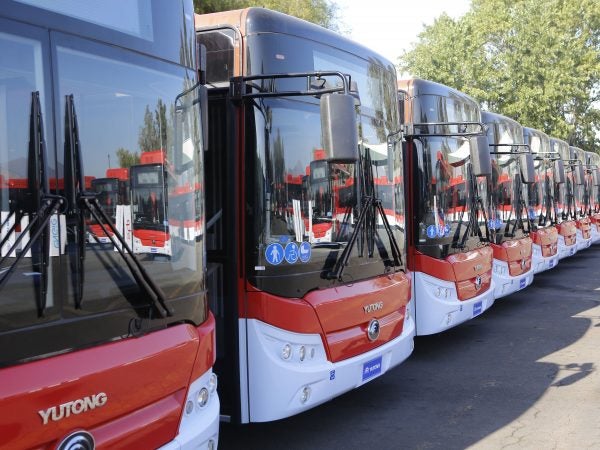The UN climate summit in Madrid (COP25) is defined as the “Ambition COP”. Around 500,000 people marched in the Spanish capital last Friday, demanding action that responds to the scale of the climate emergency. If left ignored, it will likely lead to profound social, economic and environmental impacts.
Increasing ambition refers to the need to enhance Nationally Determined Contributions (NDCs) to reduce greenhouse gas emissions bring them in line with the ultimate goal called for by science to reach net-zero emissions by 2050.
21 Latin American and Caribbean countries have already recognized this goal and have begun efforts to define their long-term strategies (LTS). The LTSs can guide the design of more ambitious NDCs by identifying the transformations required to decarbonize different sectors of the economy.
Financial strategies can align investment
One tool that can help governments to implement its climate plans is a financial strategy, which determines at the national level how to finance the required transformations in all sectors that play a crucial role in decarbonization such as energy, agriculture, or transportation.
A strategy can facilitate the identification – in a dialogue with the relevant actors – of investment priorities, possible financing approaches, and consider how public and private resources could be used to implement the country’s objectives. At the same time, they can help to avoid investments that go against decarbonization and resilience.
So far, decarbonization efforts have been under the responsibility of environment ministries. In terms of financing climate action, much attention has been given to the use of multilateral and bilateral climate financing instruments, such as the Green Climate Fund, for the financing of specific projects.
But this is not enough. The Paris Agreement sets an ambitious goal for concessional climate financing of USD 100 billion per year. However, it is estimated that more than 30 times that needs to be invested every year to cover infrastructure needs in a world consistent with the goals of the Paris Agreement.
Mobilizing these enormous amounts requires a more holistic approach, which considers how all government ministries can take part in institutional transformations and regulatory updates that permit aligning both public spending and private investment with decarbonized and resilient development goals. In this context, the ministries of finance and planning play a critical role in the development and implementation of financial strategies. They can introduce criteria to prioritize investments in public infrastructure required and ensure alignment of sectoral policies.
Take the example of public transport with electric buses, which is one of the pillars of decarbonization that all countries could consider implementing. Concessional climate funds could finance specific pilot projects that demonstrate how the technology works. But to have an impact at scale, countries will need to invest in public infrastructure (such as exclusive bus lanes and charging stations), and update their tends models to enable business models that make it possible to use electric buses.
Chile’s strategic approach
That is why the IDB has been supporting the Chilean government in the development of a financial strategy for climate change. The strategy provides a framework to direct financing towards the objectives of the new NDC and plan to achieve carbon neutrality by 2050. The minister of finance, Ignacio Briones, announced yesterday in Madrid the three axes of action that make up the strategy:
- The generation of information, data and analysis to inform decision-making, including the definition of investment priorities and financing barriers, as well as the periodic evaluation and improvement of the institutionality of climate finance.
- The promotion of the design and issuance of economic and financial instruments, through the generation of enabling environments and coordination of actions, to mobilize different sources of financing, including multilateral sources and instruments such as Sovereign Green Bonds.
- The strengthening of the understanding, capabilities and action of the local financial sector in terms of risks and opportunities arising from climate change. This axis will promote continuous work in the public-private green finance group created this year in Chile with IDB support.
In the strategy, the government identifies immediate actions to be developed over the next two years including for example: the definition of investments needs and a roadmap to implement the NDC and carbon neutrality vision; development of pipeline of projects, including through public investment system; develop new sovereign green bond issues; and develop a green agreement in conjunction with the financial sector and the regulators and define a “Green Finance Roadmap 2020+” to facilitate its implementation.
According to the minister, the strategy constitutes a starting point for intersectoral work. Chile proposes to update its strategy periodically in line with new NDCs required every five years under the Paris Agreement. In this way the strategy represents a roadmap to guide the efforts to align resources for the long term.
The experience of this strategy can be shared and discussed with the Coalition of Finance Ministers for Climate Action, led by Chile and Finland, which is a space where ministers seek to strengthen their role in the fight against climate change.
As countries advance in the planning and implementation of their NDCs and long-term strategies, the development of financial strategies will become increasingly relevant. Through the IDB’s NDC Invest platform, we will continue to support the entire region with this crucial task.


Leave a Reply